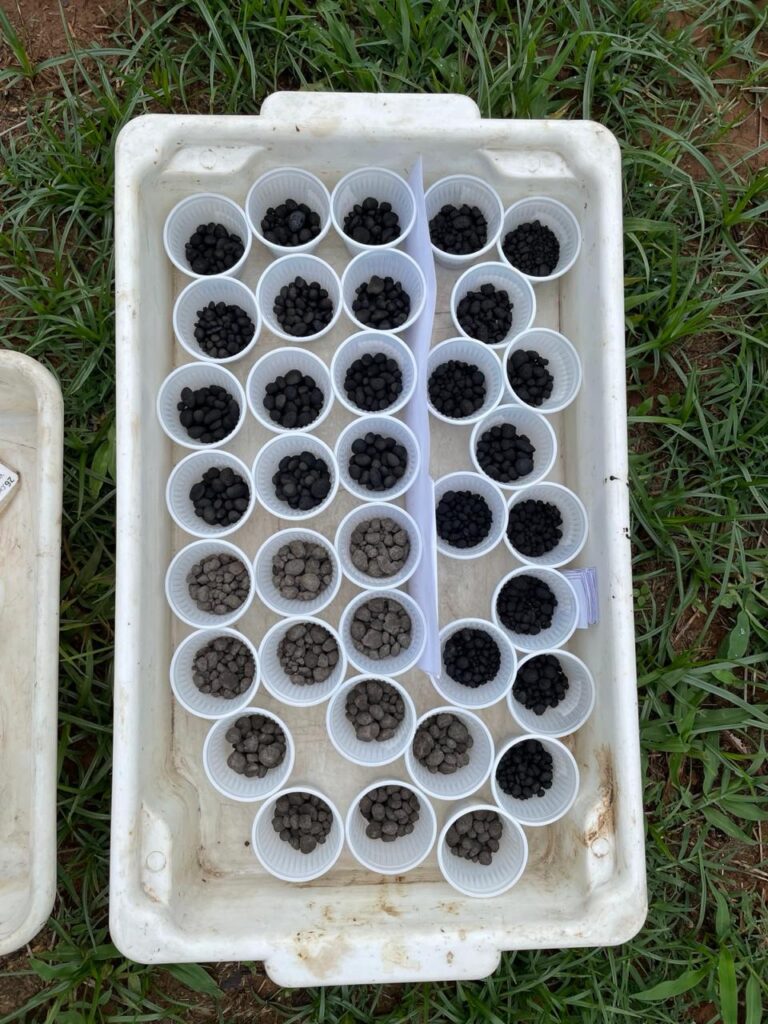José Mendes dos Santos Júnior, Luiz Arnaldo Fernandes, Fernando Colen, Leidivan Almeida Frazão e Rodinei Facco Pegoraro
Abstract
Abstract
The low fertility of tropical Oxisols challenges sustainable agriculture. While biochar-based granular fertilizers (BBGFs) offer a solution, the influence of different organic binders is unclear. This study investigated how BBGFs formulated with bio-oil (BO), pyroligneous extract (PE), and cassava wastewater (CW) impact soil enzyme activities and nutrient dynamics over time. Eucalyptus biochar (B) and natural phosphate (NP) were granulated with three binders at four doses. These treatments, plus controls (unfertilized soil, NP, B with NP, and B alone), were incubated in an Oxisol, assessing soil samples after 10 and 40 days of incubation. All BBGFs significantly enhanced β-glucosidase, acid phosphatase, and arylsulfatase activities over controls, with increases exceeding 8%. While the BBGFs-BO formulation sustained the highest enzymatic activity, BBGFs-PE at 125% maximized acid phosphatase at 10 days, with a subsequent decline, and inhibited arylsulfatase at the 150% dose. BBGFs-CW was most effective for increasing P availability (up to 24.0 mg kg−1). BBGFs-BO and BBGFs-PE also enhanced soil organic carbon and cation exchange capacity by up to 430% and 163%, respectively. The BBGFs-BO at 150% dose is the most effective and stable formulation to enhance nutrient cycling and soil health, offering a viable pathway to convert agricultural residues into high-value fertilizers.
Keywords
β-glucosidase; acid phosphatase; arylsulfatase; nutrient cycling; agricultural residues; biological indicators






